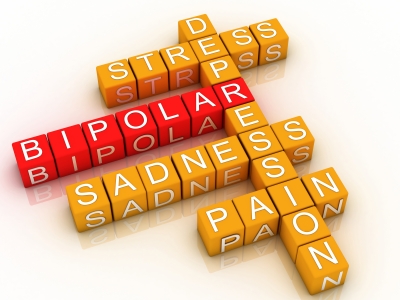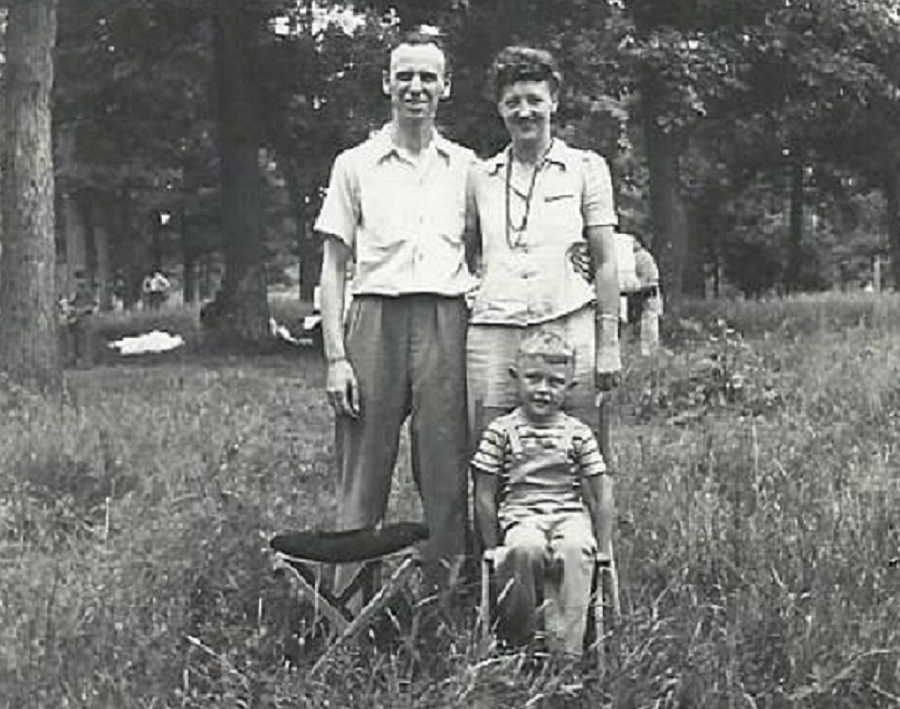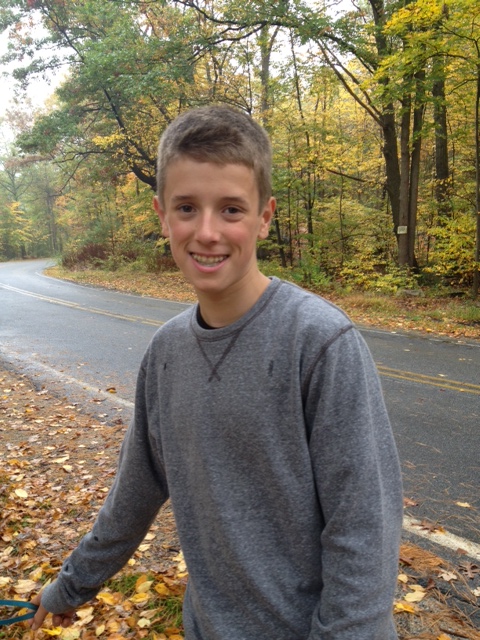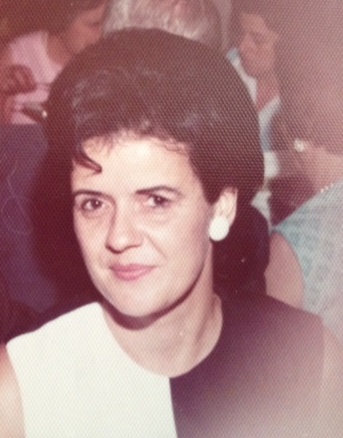At my age, I should be having a normal mid-life meltdown. Instead I’m having this weird ethnic identity crisis. More about my DNA test results on Monday.


Opening Up About Family for Adoptees and Adopters
The idea of making a profit from the adoption of babies turns my stomach but that’s how it works in many states. Illinois, my home state, deserves some credit for taking action to keep the profit out of the adoption process.
The state’s Attorney General, Lisa Madigan, has filed a groundbreaking lawsuit against the Adoption Network Law Center, a for-profit adoption provider that reaches families far beyond its home state of California. Prospective adopters in Illinois and elsewhere can find the Adoption Network Law Center quickly with a few clicks of the mouse. The company is not approved by the Illinois Department of Children and Family Services to place children, according to the lawsuit.
The Illinois case calls attention to the Internet’s vital role in the adoption process. It’s not an overstatement to say the Web has transformed just about all aspects of adoption including the way parents find babies to adopt.
It’s tempting for eager would-be parents to jump online to fast track their plans to build a family.

Adam Pertman advises parents to slow down.
“Educate yourself,” says Pertman, executive director of the Evan B. Donaldson Adoption Institute. “Don’t just do it by clicking on a mouse. Go to an adoption agency for an educational session. Become a more informed person. Understand this is a big important life decision that requires a process. It’s a process rather than just a transaction.”
You can love the Internet or hate it but you can’t avoid it so learn how to use it intelligently. The Internet is teeming with adoption agencies and other adoption providers – good ones, bad ones and everything in between. Weeding out the bad guys is not always easy for parents. The Adoption Institute offers a list of questions for parents to ask to assess the integrity of the providers.
The Adoption Institute is also conducting research on the Internet’s role in adoption. Adopted adults, adoptive parents, birth parents and adoption professionals are sought for this project. Check out the surveys (online of course). Each one takes about 15 to 20 minutes.
As adopted adults, we all want to know about the diseases that run in our families. A couple of weeks ago, I wrote about uncovering my medical history and learning about my family’s health problems.
Well, I’ve got to be honest. Digging up the truth about my mother, Lillian, has caused me pain. My heart sank when I first talked to my mother’s sister-in-law, Carolyn, a friendly woman who I called out of the blue over Labor Day weekend. Carolyn told me Lillian had a problem with alcohol and mental illness and she was not the only one in her large family to struggle with those demons.
Oh boy. Those are not the first things I wanted to hear about the woman who brought me into the world, a woman I never knew but my first mother all the same. I felt like a heavy weight had just fallen on me. It really hurt.
But, I reasoned, Carolyn didn’t know Lillian all that well and didn’t really like her. What she remembered about Lillian was not flattering. I didn’t want to take Carolyn’s word for it so I called other people who were close to Lillian. They confirmed what Carolyn told me.
Lillian may have suffered from bipolar disorder. My mother’s best friend, Nancy, recalled the time she and Lillian were at Nancy’s home and they were peeling potatoes. My mother told Nancy, “those voices in my head are telling me to kill you.” Nancy replied, “tell those things to go to hell.” She took the knife away from Lillian, sat her down and offered her beer. Before long, Lillian was fast asleep.
You can’t pass judgments on someone with breast cancer, which is what killed my mother, but you react differently to mental illness and alcoholism. They carry a stigma. It would have hurt me less if I had learned those truths after learning other things about my mother – her hobbies, family background, religion, politics, favorite books or movie stars. When you go on this type of journey, you swallow hard and take the discoveries as they come.
Bipolar disorder is a serious mental illness characterized by sweeping mood swings During manic periods, people can become extremely talkative and behave recklessly. It lowers inhibitions and causes people to make bad decisions. The high periods can morph into dark periods in which people feel irritated or angry. During depressed periods, people can experience a loss of energy, feel sad or worthless, and have trouble sleeping. Many people who are bipolar also suffer from alcoholism.


My mother ran around with guys. That’s how I came into the world, according to people I’ve talked to who were close to Lillian.
Lillian and her family lived modestly but one year, my mother spent an eye-popping $5,000 on Christmas. Lillian’s husband cut up the credit cards and Lillian proceeded to trash everything in the refrigerator.
If I didn’t know about her health problems, I would hold those shenanigans against her. What kind of wife and mother goes out with other men? Why wasn’t she home with her family? How does a mom with four kids (five if you count me, the secret child) have the time or energy to run around? How could a responsible woman blow that kind of cash on Christmas? That was an astronomical sum of money for her family, as it would be for many families, mine included.
Risky sex and spending sprees are not uncommon for people with bipolar disorder.
Learning about Lillian’s problems with booze and mental illness help me understand and excuse her behavior. I think the voices in her head, mixed with too much beer and whiskey, explain why she did the things she did.
Alcoholism and bipolar disorder run in families. Lillian and I share genes but we never shared our lives together. We had very different childhoods. Lillian grew up poor in Depression-era Indiana. She was a “welfare child,” as the U.S. Census described her, and she lived with at least two foster families. I grew up in Chicago in a comfortable, lower-middle class home with my adoptive parents and sister, Melissa. We lived in the same house throughout our childhood.
I am one of the calmer people I know. I hate drama and try to keep my life on an even keel as much as possible. I’m not bipolar. I’m also not an alcoholic though I enjoy wine.
I wonder if mental illness, alcoholism and other forms of addiction were common problems for birth moms who gave their babies up for adoption.
A couple of weeks ago, I wrote about uncovering my medical history and the relief it gives me as an adoptee to know about the diseases that run in my family.
To be honest, though, it has not been easy to learn the truth about my mother, Lillian. My heart sank when I found out about her struggles with alcohol and mental illness. She was not the only one in the family to fight those demons.
I’ll tell you more on Monday.

I will always think of Bob Miller as my real dad.
He did not pass his genes on to me but so what? Bob did all the things good fathers are supposed to do. He read stories to me before bedtime. He played tennis with me. He drove me and my sister, Melissa, to the piano teacher’s house for lessons. (He never covered his ears when we practiced.)

When the fourth grade bully jumped on my back and knocked me down, Dad chased Maureen, grabbed her by the collar and hauled her into the principal’s office.
When I was in eighth grade, my parents wanted to get me into a high school in a better neighborhood. Dad talked to the principal. Tell the school your daughter wants to study cosmetology, the principal advised. Well what do you know? My make-believe interest in hair styling got me into a newer high school in a safer neighborhood on Chicago’s southwest side. Way to go, Bob, and good tip from Mr. Mulcahey.
Born in 1910, Bob Miller grew up in a big family – he had something like 10 brothers and sisters. They lived in Menominee, a tiny town in Michigan’s Upper Peninsula. “God’s country,” was how he described the area.
Bob moved south, lived in a boardinghouse when he was young and single and worked as a linotype operator. My mother, Claire, accused him of having that “boardinghouse reach” whenever he helped himself to seconds at dinner. Dad could really eat, especially dessert. For a man with a hearty appetite, Bob was always slender, skinny actually. I used to think I inherited his appetite and metabolism. When I was a girl, I could pack the food away and never gain an ounce. I also have slender fingers which I used to think I got from my father.

Bob was an unrefined gentleman. He cursed freely but the words didn’t mean much. He would have been a better dad if he had stood up to Claire occasionally. He always deferred to our high-strung, self-centered mother.
The last time I saw my father, he was flat on his back on a hospital bed. Even though he was dying, Bob gave me a smile when I said good-bye.
Bob Miller was not my biological father but I didn’t know that when he passed away in 1999, less than a year after Claire died. My loving but secretive parents never told Melissa and me we were adopted. We never found a single document related to our adoptions. One of our cousins told us the truth in 2002.
My biological dad is “not legally known,” as the birth certificate puts it. That makes me some man’s love child. He’s a mystery to me whoever he is. As I wrote earlier, my bio dad liked to play golf but that’s all I know about him. He may know even less about me.
Do you know who your dad is? What do you think of him?
Every time I go to the doctor’s office, the doctor asks me about my medical history. My answer is always the same: “I’m adopted. I don’t know anything about my medical history.”
Fortunately, that’s no longer true. I’m not completely in the dark about the medical issues that run in my family.
If I learn nothing more about my biological relatives, I will be grateful for the information I have about my birth mother’s health.
Lillian died of breast cancer at the age of 48. That’s what several family members told me and I confirmed it by obtaining a copy of Lillian’s death certificate from the state of Illinois.

Not knowing anything about our medical history is a common frustration among adoptees. Even those of us who are healthy want to know which diseases run in the family. Everyone should know their medical history, particularly information on their closest relatives. Having the knowledge means we can ask better questions of our doctors. The knowledge also gives us the power to make lifestyle changes or ask our doctors for specific screenings – whatever steps we can take to counter our genetic heritage.
I have a 13-year-old son, Jake, so my medical history could mean something to him.

It’s impossible to prepare for inherited risks you don’t know about. During an online search, I found these comments, written by an adoptee on Adoption.com:
“My brother…he was also adopted (we had different birth parents). His medical past was littered with mental and physical illness that our parents knew nothing about. It was only when he became a teenager that they could tell something was not right with him. They had his records unsealed by the court system and were shocked to see everything that had not been disclosed. They got him help but he is disabled to the point that he lives in an assisted living facility for the mentally disabled. Had they known earlier, maybe it could have helped, maybe not, but at least knowing about it could have made the situation different.
Although I knew that I was generally healthy, there are lots of things out there that can be carried, or can skip generations. I love the fact that my history is no longer unknown.”
Exactly. It is strangely comforting for me to have a name for the disease that killed my mother.
This week I called my gynecologist. In addition to an annual mammogram, should I do anything more as far as screenings for breast cancer? I asked. Should I be tested for the BRCA genes? (Mutations of the BRCA1 and BRCA2 genes are linked to breast and ovarian cancers. Angelina Jolie, after testing positive for the BRCA1 gene mutation, opted to have a double mastectomy.)
The office worker put me on hold to consult the staff. Minutes later, she returned to the phone. As long as you don’t notice any changes in your breasts, she said, you can wait until your annual exam, which is coming up in a couple of months, to discuss the options with your doctor. Ok, that settles that, I thought.
Thinking of Jake, I went online to find out about the risk factors for breast cancer in men. Male breast cancer is rare but, according to the Mayo Clinic, having a family history of breast cancer can increase a guy’s chance of developing the disease. I’m not going to lose sleep over this but it is something to keep in mind.
What have you done differently since you learned about your medical history or your child’s history? I’d love to hear from adoptees and adoptive parents.
Every time I go to the doctor’s office, the doctor asks me about my medical history. My answer is always the same: “I’m adopted. I don’t know anything about my medical history.”
This is a common frustration for adoptees.
Fortunately, I’m no longer completely in the dark about the medical problems that run in my family.
If I learn nothing more about my biological kin, I will be grateful for the information I have about my birth mother’s health. Stay tuned. I’ll have more to say about medical history on Monday.

A birth mother’s right to privacy should not trump an adoptee’s right to know where she came from, writes Natalie Turko-Norton in a letter published in the Montreal Gazette.
Turko-Norton eloquently argues that adoptees should not have to settle for incomplete information (or no information) about their origins.
“Their right should not be trumped by the birth mother’s right to anonymity,” writes Turko-Norton. “Her background is not a mystery. It is the child, now an adult, given up for adoption, whose life is a mystery. What gives society the right to condemn such a person to a life of ‘not-knowing’ because the birth mother wants to preserve her intact life and new family? This is not a level playing field by any means.”